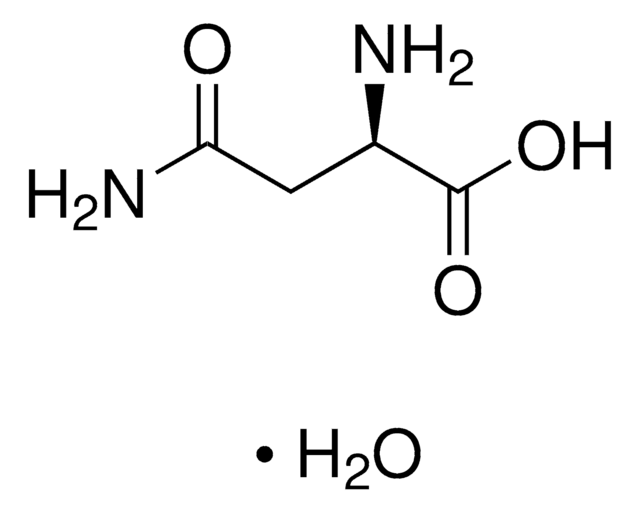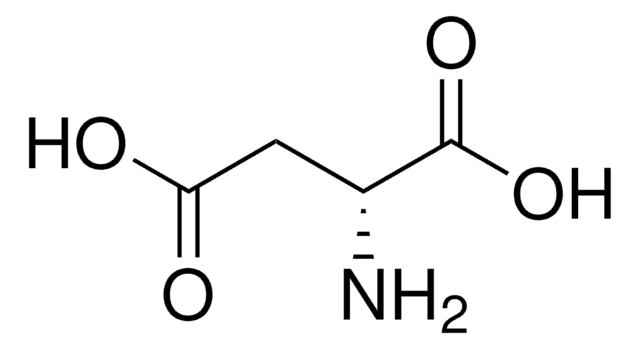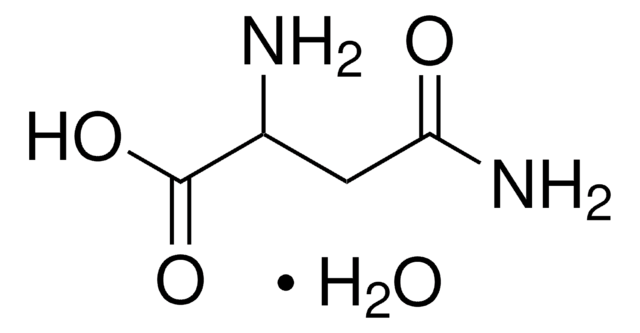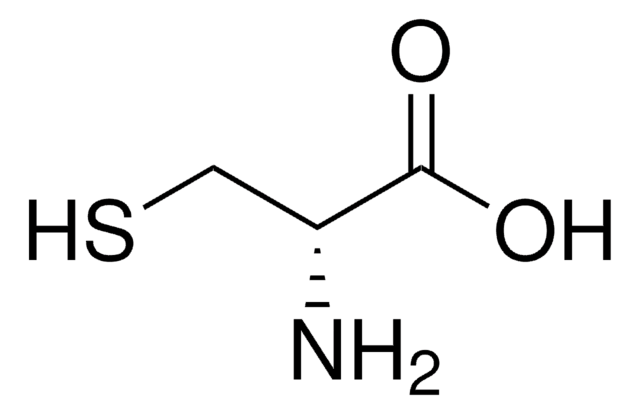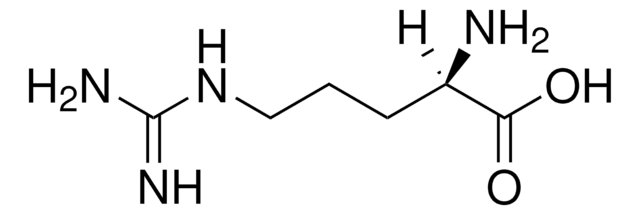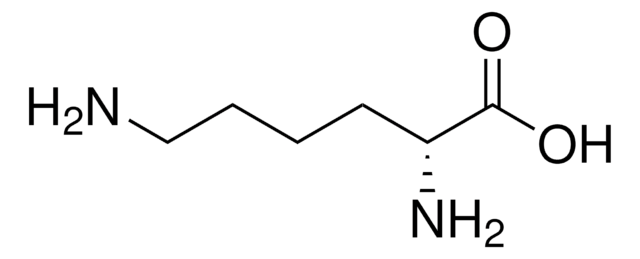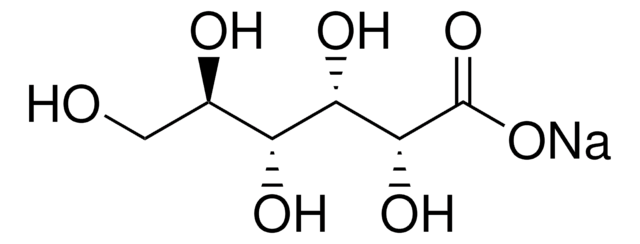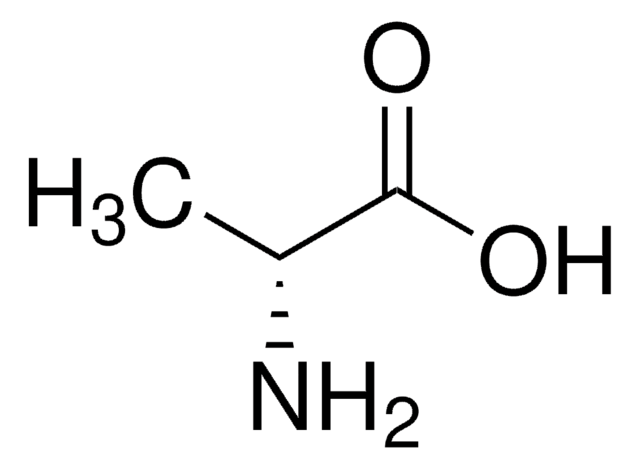441597
D-Asparagine
99%, for peptide synthesis
Synonym(s):
(R)-2-Aminosuccinamic acid, (R)-2-Aminosuccinic acid 4-amide, D-Aspartic acid 4-amide
About This Item
Recommended Products
Product Name
D-Asparagine, 99%
Quality Level
Assay
99%
form
solid
optical activity
[α]20/D −35°, c = 5 in 5 M HCl
reaction suitability
reaction type: solution phase peptide synthesis
mp
280 °C (dec.) (lit.)
application(s)
peptide synthesis
SMILES string
N[C@H](CC(N)=O)C(O)=O
InChI
1S/C4H8N2O3/c5-2(4(8)9)1-3(6)7/h2H,1,5H2,(H2,6,7)(H,8,9)/t2-/m1/s1
InChI key
DCXYFEDJOCDNAF-UWTATZPHSA-N
Looking for similar products? Visit Product Comparison Guide
Storage Class Code
11 - Combustible Solids
WGK
WGK 1
Flash Point(F)
Not applicable
Flash Point(C)
Not applicable
Personal Protective Equipment
Regulatory Listings
Regulatory Listings are mainly provided for chemical products. Only limited information can be provided here for non-chemical products. No entry means none of the components are listed. It is the user’s obligation to ensure the safe and legal use of the product.
JAN Code
441597-100G:
441597-25G:
441597-VAR:
441597-BULK:
Choose from one of the most recent versions:
Already Own This Product?
Find documentation for the products that you have recently purchased in the Document Library.
Customers Also Viewed
Chromatograms
application for HPLCGlobal Trade Item Number
| SKU | GTIN |
|---|---|
| 441597-100G | |
| 441597-25G | 4061832282060 |
Our team of scientists has experience in all areas of research including Life Science, Material Science, Chemical Synthesis, Chromatography, Analytical and many others.
Contact Technical Service

